- Home
- James Hadley Chase
This is For Real Page 22
This is For Real Read online
Page 22
“Tessa!” he said sharply. “Pull yourself together! You’ve got to help me!”
She straightened, wiping her eyes with the back of her hand.
“He was the nicest and kindest person I’ve ever known,” she said unsteadily. “Oh, the devils!”
“They’ll do the same to us if we don’t watch out,” Girland said roughly. “Do you know where we are?”
“No, but we must keep the sun to our right. If you get lost in the bush, you must do that otherwise you go in a circle.”
Girland looked at the petrol gauge. The tank was three-quarters full. That at least was encouraging, he thought. We have water and food. We could still get out of this mess.
“Well, watch the sun,” he said. “But we are driving north and we want to go east. Shouldn’t we head east now?”
“There’s a road somewhere ahead of us … about ten kilometres. Momar was heading for that. If we can find it, it will take us to a village and we can get a guide.”
But after driving fifteen minutes or so, Girland came to the conclusion that they had somehow missed the road. He stopped the car under the shade of a tree.
“Do you think we should turn back?” he asked.
Tessa got out of the car and looked around the flat endless waste.
“We might have missed it by a kilometre or twenty kilometres. If we go back we might run into that gunman.”
Girland looked at his watch. The time was half past ten. It didn’t seem possible so much had happened in so few hours.
“Think there’s another village further ahead?”
“There are villages all over the bush. We might be lucky.”
“Okay, then we’ll go on. Let’s have a drink first.” He got out the water skin and carefully poured a little of the water into the cap of the vacuum flask. They both moistened their parched mouths. “Hell!” Girland went on, grimacing, “I would settle for that orange squash without the gin now.”
He put the water skin back in the car and got under the wheel. Tessa got in beside him, and once again they drove over the uneven ground.
A further ten minute drive brought them to a circle of Baobab trees.
“This is where they used to practice black magic,” Tessa said. “When you see these trees in a circle you know what they were used for and are still sometimes used for. The trees are hollow. When they die, witch doctors are buried inside the trees as they believe they will foul the land.”
“As long as no one buries me in one of them,” Girland said. He glanced again at the petrol gauge, then felt a cold chill run up his spine. The needle of the gauge showed they had now only a quarter of a tank of petrol left. ‘For God’s sake, look at that! We couldn’t have used all that gas!” He pulled up. “Maybe we’re losing gas.” He went around to the back of the car and inspected the petrol tank. He swore under his breath when he saw the neatly drilled hole in the lower part of the tank. The last rifle shot he had heard had been devastatingly effective.
Tessa joined him.
“We’re in trouble,” he said. “A quarter full. How far do you think that’ll take us?”
“Thirty kilometres,” Tessa said, watching Girland as he plugged the hole with a .45 bullet covered with his handkerchief.
“We might find a village by then.”
He looked sharply at her.
“You’re not frightened?”
She smiled at him.
“It’s no good being frightened, is it? We have food and water. When the gas runs out, we must get in the shade and wait for the sun to go down. We can’t walk in this heat.”
He nodded.
“Okay. Well, let’s get going.”
They climbed into the car and drove on into the burning waste land that seemed to have no ending.
Malik with a map on his knees sat beside Smernoff who was operating the walkie-talkie. Dieng was at the wheel of the Jeep with Ivan at his side. Daouda sat on the roof in the full glare of the sun, a rifle across his knees.
They had been driving some time and now the walkie-talkie crackled into life.
Smernoff listened to the excited voice that buzzed and hummed through the headphones. Whoever was calling had a lot to say and Malik kept glancing impatiently at Smernoff. Finally, the voice ceased and Smernoff said, “Alert Post Three,” and took off the headphones.
“A girl, a man and an African, driving a Deux Chevaux reported on square ten of your map.” He leaned against Malik and pointed. “That would be about forty kilometres from here. They were shot at and the African was killed. It is unlikely the girl and her companion will get far without a guide. The African came from a small settlement on square nine of your map. Carey could have been hiding there. The girl and the man are heading towards three of our best snipers. They’ve been alerted. What do we do now … follow after them?”
“Who’s the girl?” Malik asked frowning. “Would the man be Carey?”
Smernoff didn’t say anything. It was Malik’s job to make the decisions.
“We’ll go to the settlement,” Malik said. “We must be certain that Carey isn’t there still.” He leaned forward and gave Dieng a change of directions. Once again the Jeep increased speed, tearing through the bush and sending clouds of sand rising in the air in its wake.
“Get Post Three,” Malik said suddenly. “Tell them the man isn’t to be killed. If it’s Carey I want to talk to him.”
Smernoff raised Post Three on the walkie-talkie and gave the operator Malik’s instructions.
“Cripple the car and take them alive,” he concluded. “I don’t care how you do it … do it!”
A ten minute drive brought them in sight of the three huts with their surrounding straw and bamboo wall. The Jeep pulled up at the gate. Gun in hand, followed by Ivan, Malik walked into the small compound.
Three Africans faced him uneasily. They made a protective circle before one of the huts where their wives and children tried to hide themselves in the semi-darkness.
“We are looking for a white man,” Malik said to Momar’s eldest son, Cheickh. “Where is he?”
The green evil eyes frightened Cheickh. Monsieur Carey was beyond the reach of these men now. He saw no reason to antagonise them.
“He is dead, monsieur. We have just buried him.”
Malik’s mouth tightened. “Where?”
Cheickh moved forward and pointed through the gate.
“Under the tree.”
Malik snapped an order to Dieng who walked over to the tree and picking up a shovel that leaned against the tree, he reluctantly began to dig.
Ivan had gone into the big hut. After some minutes, he came out and joined Malik.
“That’s where he’s been hiding. There’s a small hole in the ground as if something had been buried there. It’s not there now.”
Malik turned away and walked over to where Dieng, now helped by Daouda, had opened the grave. He stood looking down at Carey’s dead face. Ivan came over.
“Shot himself,” Malik said. “Damn him! He was always one move ahead.” He leaned forward and spat in the dead man’s face.
Ivan said, “These other two must have the films.”
“Tell Smernoff to raise Post Three again. They are to stop them at all costs,” Malik said. “If they can’t stop the car, they are to shoot them. Hurry!”
As Ivan ran over to the Jeep, Malik returned to the compound.
“Who is the white woman who was here?” he demanded, walking up to Cheickj.
The African shuffled his feet.
“I don’t know, monsieur.”
Malik hit him across his face with the barrel of his gun.
Cheickh staggered and recovered his balance.
“Who is she?” Malik repeated viciously.
“I don’t know, monsieur.”
Malik turned to Dieng.
“Go in there and get one of the children. If this man doesn’t talk, cut the child’s throat.”
The women in the hut began screaming. Dieng had to fi
ght his way through them to grab one of the crying children. Momar’s youngest son whose child it was, rushed forward, swinging his fists. Malik shot him through the head.
There was a long pause and silence, then the women and children began wailing. One of the women threw herself on the fallen African, pulling at his clothes in a frenzy of grief.
Malik paid no attention: his eyes were fixed on Cheickh.
“Who was the woman?”
Dieng was holding the struggling child, a short bladed knife in his hand.
Cheickh hesitated, then said, “The daughter of Monsieur Carey.”
“And the man?”
“They called him Girland.”
Malik signed to Dieng to release the child, then he walked out of the compound and breaking into a run, reached the Jeep.
“It’s Girland and Carey’s daughter,” he said to Smernoff. “Anything from Post Three yet?”
Smernoff was twiddling one of the dials. He raised his hand for silence as he listened to the crackle coming through the headphones. Then an excited voice began speaking.
He listened and then said, “Shoot them. They must be stopped.”
Taking off the headphones, he said to Malik, “They’ve been seen. They are about two kilometres from Post Three and driving straight towards it.”
Malik snatched up his map.
“Where are they?”
“Square eleven. About thirty kilometres from here.”
Malik looked at the gate leading into the compound.
“We don’t want trouble with the police,” he said and walked back to where Ivan was standing. “Get rid of this lot. They could make trouble. Hurry!”
Ivan grinned. This was an order he liked and could execute efficiently. He drew his gun and moved into the compound.
Malik returned to the Jeep. Dieng was already sitting behind the wheel. Daouda was perched on the roof.
The two Africans flinched when the shooting began. One skinny child, his black eyes rolling in terror, darted out into the hot sunshine and began running frantically away from the Jeep.
Malik lifted his gun and squeezed the trigger.
“Good shooting,” Smernoff said as the child rolled in the sand. “That gun of yours throws a little to the left, doesn’t it?”
“I make allowance for that,” Malik returned and slid the gun back into its holster.
Ivan, smoking gun in hand, ran out and climbed into the Jeep. There was a relaxed, satiated expression on his fat, red face.
The Jeep moved off, gathering speed.
A lone vulture swooped out of the sky and settled its heavy body awkwardly on the branch of a tree. It surveyed the scene with its beady eyes. Other vultures appeared circling in the sky. Then one after the other they dropped to the ground and began to move slowly and awkwardly towards the compound.
Tessa was driving and the going was bad. It needed all her skill and experience to keep the car moving. At her side, Girland stared through the dusty windscreen. From time to time, he glanced at the petrol gauge. The needle kept flickering to ‘Empty’ Any moment he expected to hear the engine cough and stop.
He had no doubt that they were completely lost, but at least, he was sure they weren’t driving in a circle. Although they had changed their direction and were heading east, he was certain they were miles and hopeless miles from Diourbel and safety.
The hawks that floated motionless overhead worried him.
They must know that sooner or later there would be a feast to share with the vultures and they kept circling the car, waiting with sinister patience.
The little car lurched. The rear wheels spun and the engine stopped.
This was the seventh time they had had to lift the car out of the loose sand.
They looked at each other, then wordlessly, they got out of the car and walked around to the back. Girland paused to glance up at the circling hawks, then he caught hold of the rear bumper and with Tessa’s help, heaved the car onto more solid ground.
“Want me to drive?” he asked, trying to moisten his dry lips with an even dryer tongue.
“It’s all right. We’ll be walking soon.”
“How about a drink?”
“I think we should wait. In this heat the water will evaporate. We may need every drop before we are out of this.” He caught a note of despair in her voice and he forced a grin.
“We’ll get out of it.”
“If we could only find a village …” She paused and stared into the distance. “I thought I saw something move out there.”
Girland followed the direction in which she was looking. The flat waste land with its trees and shrubs shimmered in the heat.
“It’s the heat,” he said and opened the car door.
“No! Something moved!” Tessa exclaimed, shading her eyes with her hand. “To the right of that tree.”
Girland stared and this time he caught a glimpse of something white move and then disappear.
“Get behind the car!” he said sharply.
Tessa moved back, putting the body of the car between herself and the distant tree. Girland crouched down so that he could look along the bonnet of the car. He pulled his gun from its holster.
The insufferable heat beat down on them. Again Girland saw the movement. This time he was sure a man had risen up out of the sand, advanced a few quick paces and then dropped down again.
“There’s another to the left,” Tessa said who was peering around the side of the car. “And another further to the left.”
Girland saw the three Arabs now. They were carrying rifles and advancing in small rushes, but covering the ground. They were not more than five hundred metres away.
He took Carey’s gun from his hip pocket.
“Can you use this?” he asked, and moving back, he offered the gun to Tessa.
“Yes. I can handle it.” She took the gun and slid off the safety catch. He was pleased to see her hand was steady and her eyes calm.
He moved back to his original position and in doing so, exposed his head and shoulders above the bonnet of the car.
A rifle shot rang out and Girland felt the bullet fan his cheek. He gave a loud, gasping groan, threw up his hands and dropped out of sight behind the car.
He heard Tessa scream.
“It’s all right,” he hissed. “Don’t move!”
Two of the Arabs stood up. They made perfect targets against the brilliant blue sky.
“The one on the left is yours,” Girland said, paused for a brief moment and fired. A split second later, he heard Tessa’s gun snap spitefully. Both Arabs fell forward as the remaining Arab, hidden behind a shrub, fired.
Girland felt a searing pain in the biceps of his left arm. He moved further back. Blood ran down his arm and onto the sand. He caught a glimpse of white as the Arab began to snake forward. Before he could lift his gun, Tessa’s gun snapped again.
A small, wizened man in dirty white robes sprang up, clutching his shoulder and dropping his rifle. He started a mad rush towards the car as Girland shot hit through the head.
Tessa came around the car. She was white and shaky, but she quickly pulled herself together at the sight of Girland’s injured arm.
“Is it bad?”
He shook his head
“It’s nothing … just a scratch.”
“I’ll fix it.” She ran back to the car and came back carrying a First Aid kit. Quickly she washed the wound, using a little water from the water skin, then strapped up the cut the bullet had made.
Girland walked over to the dead Arabs and picked up their rifles. Each man had a cartridge belt around his waist. Tessa helped him collect the three belts.
“Now we can hit back,” Girland said grimly. “Come on, let’s get moving.”
They climbed back into the car and drove forward once again into the burning heat.
“I wonder how many more of them are ahead of us,” Girland said. He looked at his watch. The time was twenty minutes past three. He realised neither of
them had eaten since daybreak, but he wasn’t hungry. His throat and mouth were dry and he longed for an ice cold drink. “The gas must be nearly used up,” he went on, looking at the gauge.
“Is your arm all right?”
“Getting stiff, but it’s all right. You okay?”
“Yes.”
“You’re quite a girl. When we get out of this, we’ll celebrate. I’d like to get to know you a lot better.”
“Do you think we’re going to get out of this?”
“We can but hope.”
She was silent for a long moment, then she said, “How will we celebrate, Mark?”
“We’ll start the evening in the Plaza Athene bar. Vodka martinis, very dry and very, very cold. Then we will take a taxi to the Grand Vefour and we will eat oysters and partridges with a 1949 Claret. We will then go to my apartment where I will show you my collection of Abstracts.”
“I’ve been to your apartment. You haven’t any Abstracts.”
“I know but it won’t matter. If you can’t admire my Abstracts, at least, I will be able to admire you. It could be quite an evening.”
“But we have to get out of this first.”
“Yes.” He leaned forward to peer through the windscreen.
“Look what we are running into.”
They found themselves facing an endless waste of hard sand that seemed to stretch with the flatness of a yellowing, tightly stretched bed sheet to the distant horizon. It was as if the trees and the shrubs had abruptly lost courage and had refused to advance any further.
“It looks like a dead sea,” Girland said. “We’ll never get across that.”
“I remember Momar telling me about this place,” Tessa said, her voice excited. “On the far side is a watering place for cattle.
If we can get across, we’re certain to find a guide.”
“We haven’t the gas.”
“We must try, even if we have to walk.”
Girland hesitated, then headed the car onto the hard solid plane of sand. The little car surged forward as its tyres found at last something concrete to bite on. They were no longer bumping and banging about in their seats. The ride had become miraculously smooth.
“You have no idea how far across it is?” Girland said. “It could go on forever by the look of it.”

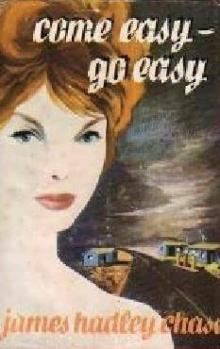 Come Easy, Go Easy
Come Easy, Go Easy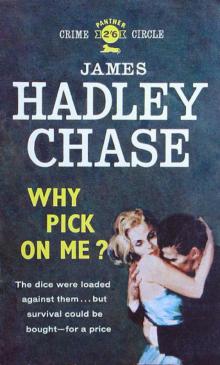 Why Pick On ME?
Why Pick On ME?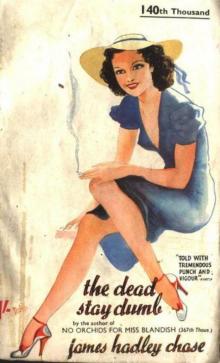 The Dead Stay Dumb
The Dead Stay Dumb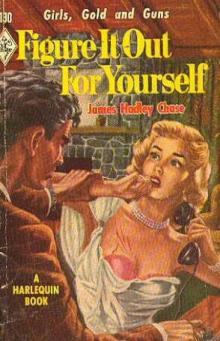 Figure it Out For Yourself
Figure it Out For Yourself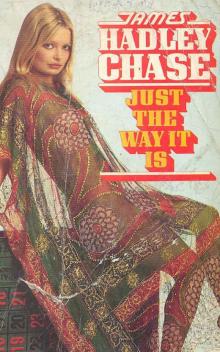 1944 - Just the Way It Is
1944 - Just the Way It Is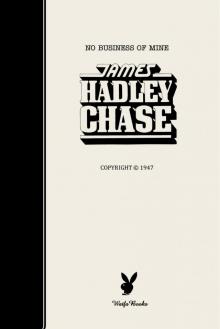 No Business Of Mine
No Business Of Mine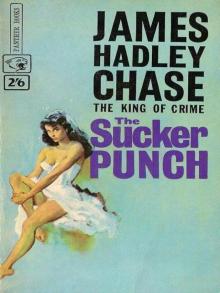 1953 - The Sucker Punch
1953 - The Sucker Punch Cade
Cade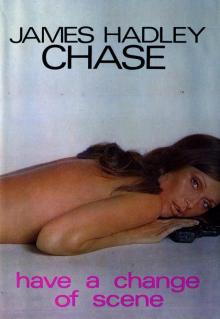 1973 - Have a Change of Scene
1973 - Have a Change of Scene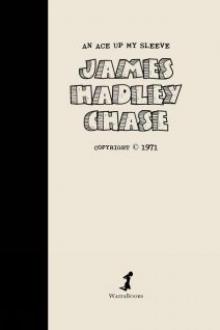 An Ace up my Sleeve
An Ace up my Sleeve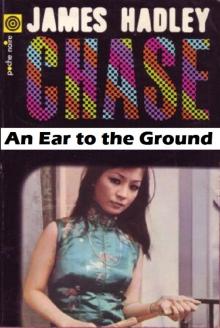 1968-An Ear to the Ground
1968-An Ear to the Ground 1950 - Figure it Out for Yourself
1950 - Figure it Out for Yourself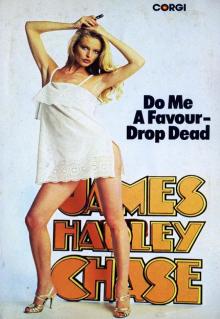 1976 - Do Me a Favour Drop Dead
1976 - Do Me a Favour Drop Dead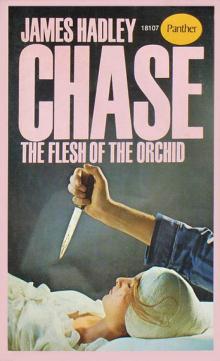 The Flesh of The Orchid
The Flesh of The Orchid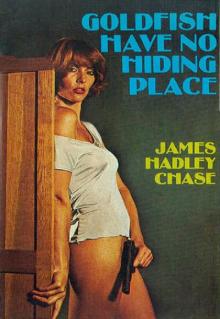 1974 - Goldfish Have No Hiding Place
1974 - Goldfish Have No Hiding Place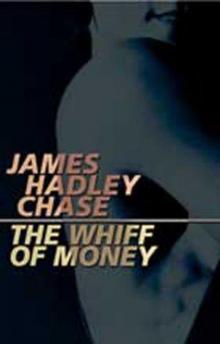 Whiff of Money
Whiff of Money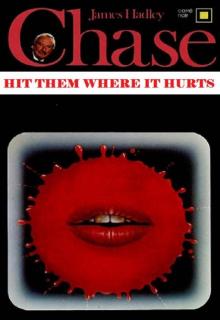 1984 - Hit Them Where it Hurts
1984 - Hit Them Where it Hurts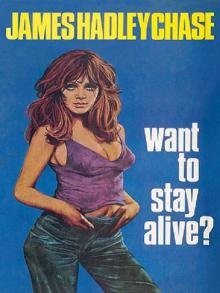 1971 - Want to Stay Alive
1971 - Want to Stay Alive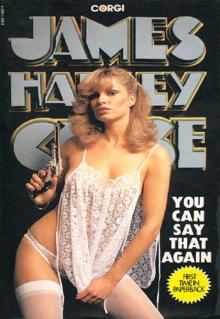 1980 - You Can Say That Again
1980 - You Can Say That Again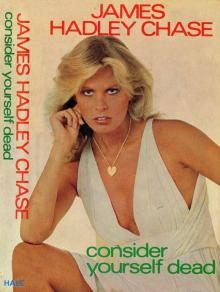 1978 - Consider Yourself Dead
1978 - Consider Yourself Dead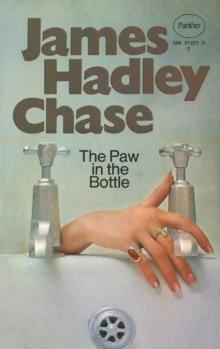 The Paw in The Bottle
The Paw in The Bottle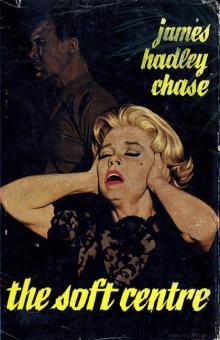 Soft Centre
Soft Centre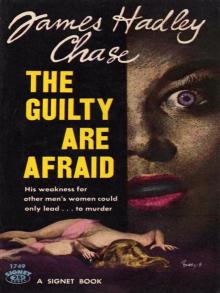 The Guilty Are Afraid
The Guilty Are Afraid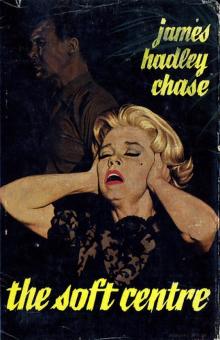 The Soft Centre
The Soft Centre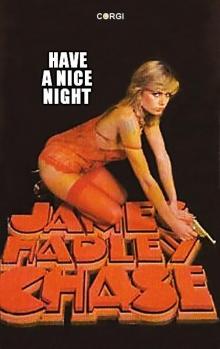 Have a Nice Night
Have a Nice Night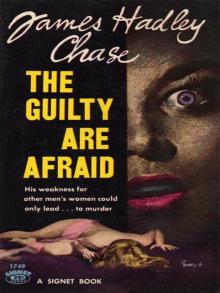 1957 - The Guilty Are Afraid
1957 - The Guilty Are Afraid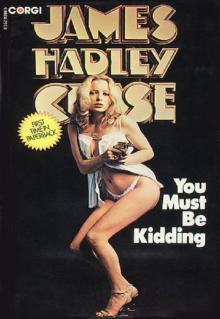 1979 - You Must Be Kidding
1979 - You Must Be Kidding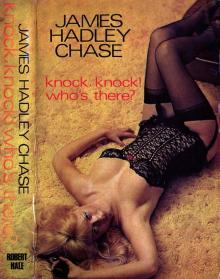 Knock, Knock! Who's There?
Knock, Knock! Who's There?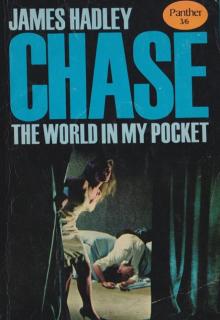 1958 - The World in My Pocket
1958 - The World in My Pocket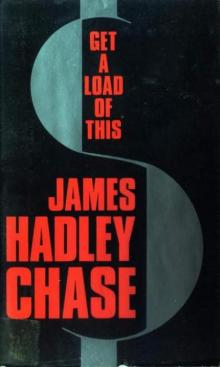 Get a Load of This
Get a Load of This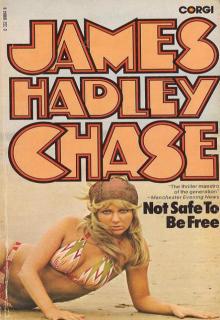 1958 - Not Safe to be Free
1958 - Not Safe to be Free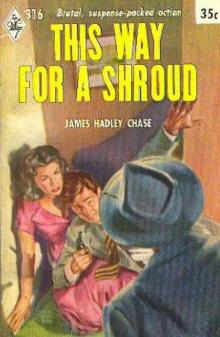 This Way for a Shroud
This Way for a Shroud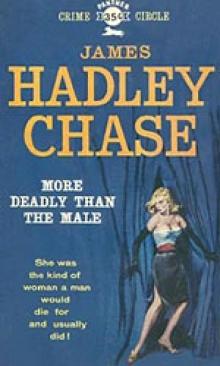 More Deadly Than the Male
More Deadly Than the Male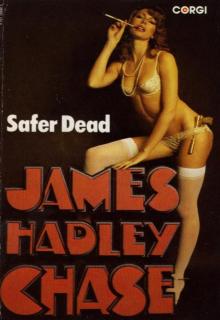 Safer Dead
Safer Dead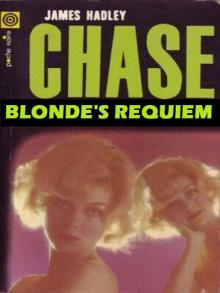 1945 - Blonde's Requiem
1945 - Blonde's Requiem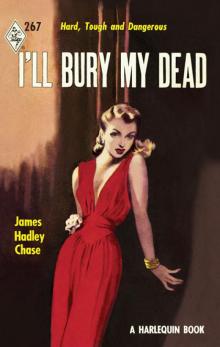 I'll Bury My Dead
I'll Bury My Dead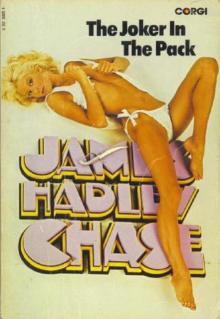 1975 - The Joker in the Pack
1975 - The Joker in the Pack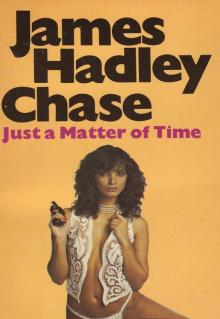 1972 - Just a Matter of Time
1972 - Just a Matter of Time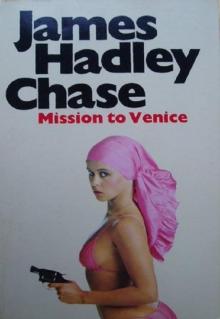 1954 - Mission to Venice
1954 - Mission to Venice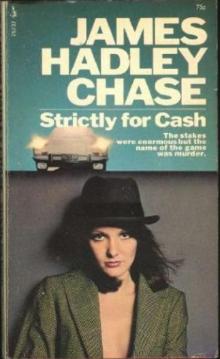 Strictly for Cash
Strictly for Cash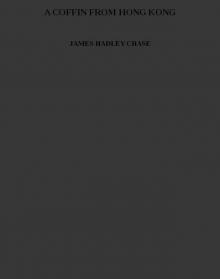 A COFFIN FROM HONG KONG
A COFFIN FROM HONG KONG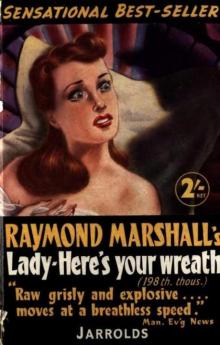 Lady—Here's Your Wreath
Lady—Here's Your Wreath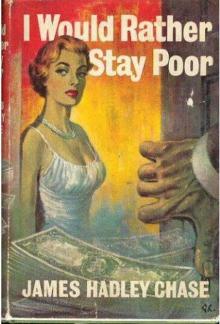 I Would Rather Stay Poor
I Would Rather Stay Poor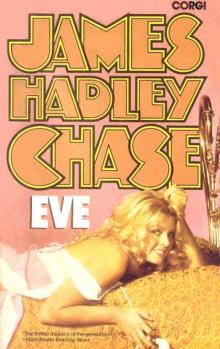 Eve
Eve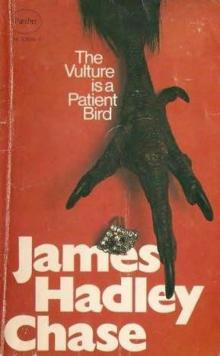 Vulture Is a Patient Bird
Vulture Is a Patient Bird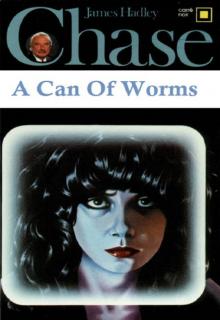 1979 - A Can of Worms
1979 - A Can of Worms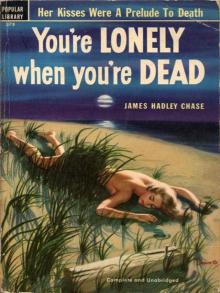 1949 - You're Lonely When You Dead
1949 - You're Lonely When You Dead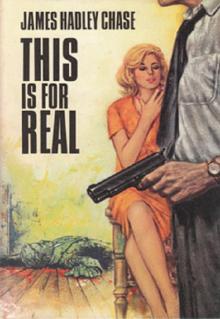 1965 - This is for Real
1965 - This is for Real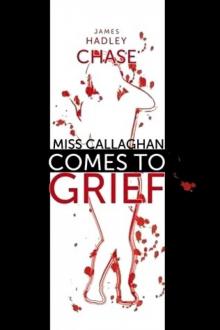 (1941) Miss Callaghan Comes To Grief
(1941) Miss Callaghan Comes To Grief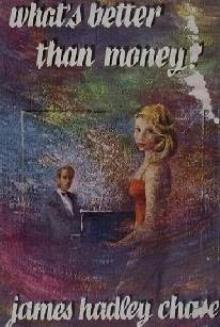 What`s Better Than Money
What`s Better Than Money This is For Real
This is For Real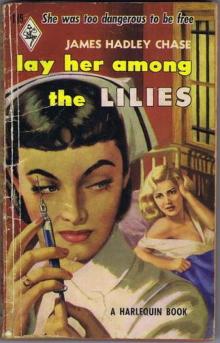 Lay Her Among the Lilies vm-2
Lay Her Among the Lilies vm-2 Knock Knock Whos There
Knock Knock Whos There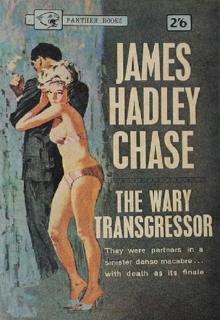 1952 - The Wary Transgressor
1952 - The Wary Transgressor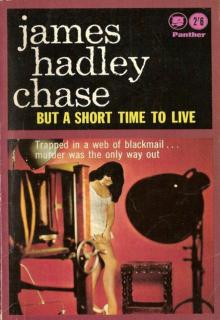 1951 - But a Short Time to Live
1951 - But a Short Time to Live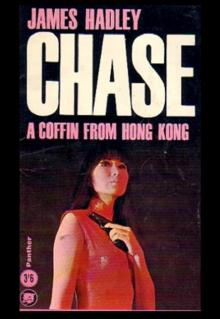 1962 - A Coffin From Hong Kong
1962 - A Coffin From Hong Kong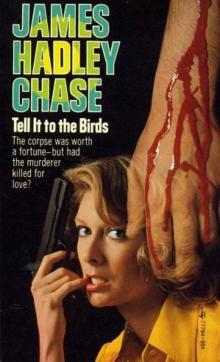 Tell It to the Birds
Tell It to the Birds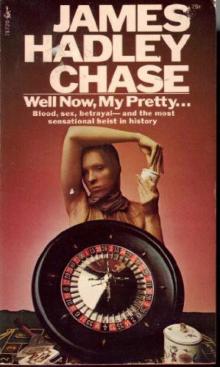 Well Now, My Pretty…
Well Now, My Pretty…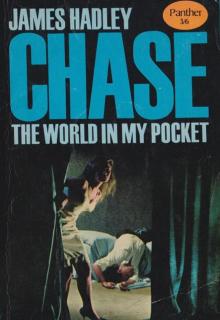 The World in My Pocket
The World in My Pocket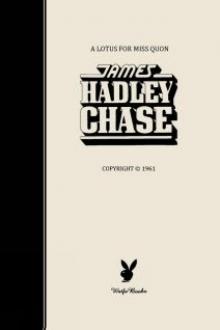 A Lotus for Miss Quon
A Lotus for Miss Quon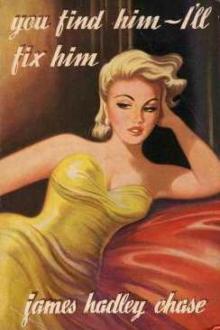 You Find Him, I'll Fix Him
You Find Him, I'll Fix Him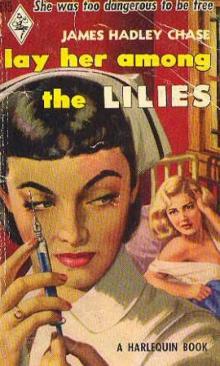 Lay Her Among The Lilies
Lay Her Among The Lilies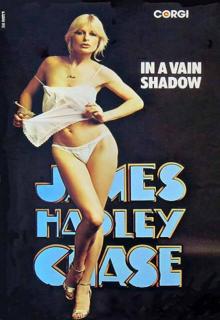 1951 - In a Vain Shadow
1951 - In a Vain Shadow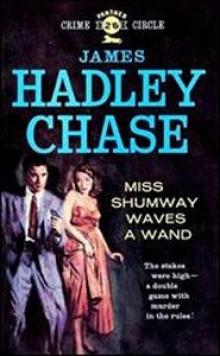 Miss Shumway Waves a Wand
Miss Shumway Waves a Wand 1953 - This Way for a Shroud
1953 - This Way for a Shroud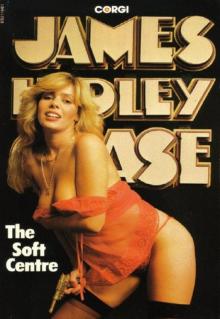 1964 - The Soft Centre
1964 - The Soft Centre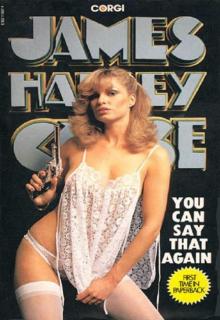 You Can Say That Again
You Can Say That Again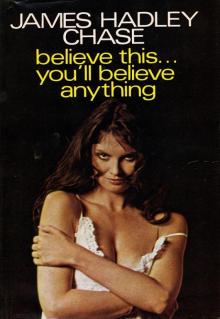 1975 - Believe This You'll Believe Anything
1975 - Believe This You'll Believe Anything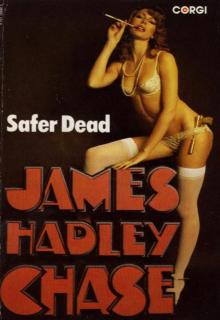 1954 - Safer Dead
1954 - Safer Dead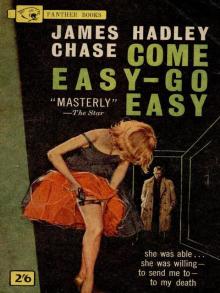 1960 - Come Easy, Go Easy
1960 - Come Easy, Go Easy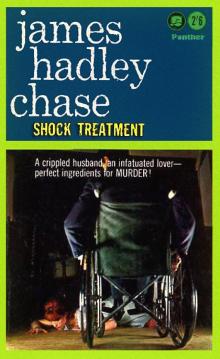 Shock Treatment
Shock Treatment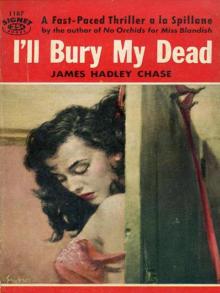 1953 - I'll Bury My Dead
1953 - I'll Bury My Dead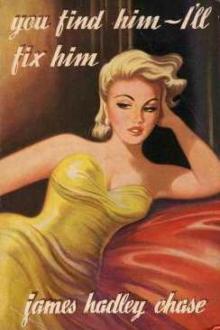 You Find Him – I'll Fix Him
You Find Him – I'll Fix Him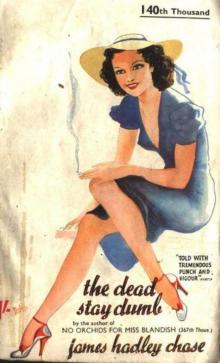 Dead Stay Dumb
Dead Stay Dumb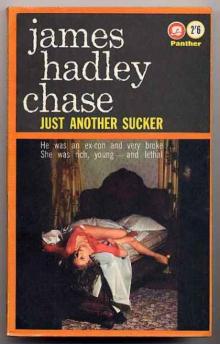 Just Another Sucker
Just Another Sucker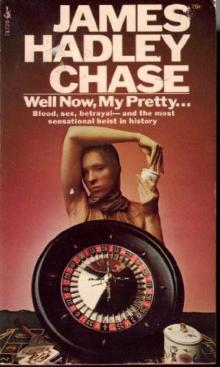 Well Now My Pretty
Well Now My Pretty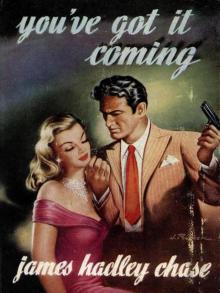 You've Got It Coming
You've Got It Coming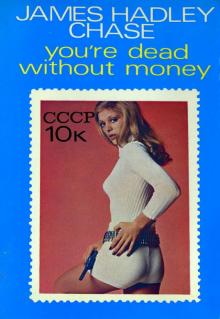 1972 - You're Dead Without Money
1972 - You're Dead Without Money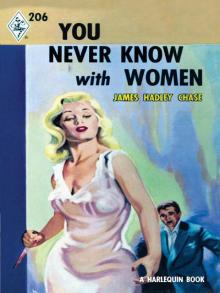 1955 - You Never Know With Women
1955 - You Never Know With Women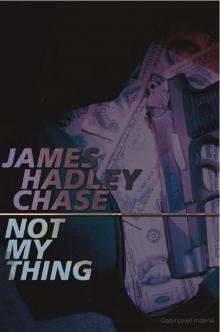 Not My Thing
Not My Thing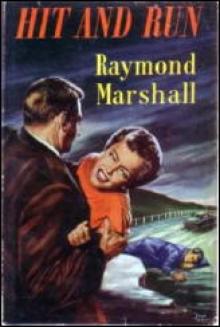 Hit and Run
Hit and Run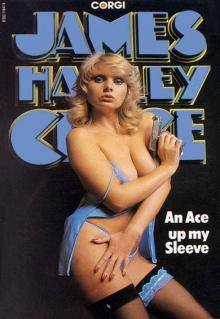 1971 - An Ace Up My Sleeve
1971 - An Ace Up My Sleeve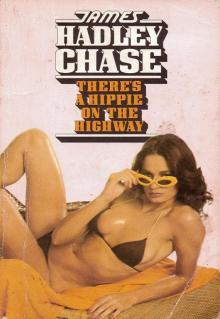 1970 - There's a Hippie on the Highway
1970 - There's a Hippie on the Highway 1968 - An Ear to the Ground
1968 - An Ear to the Ground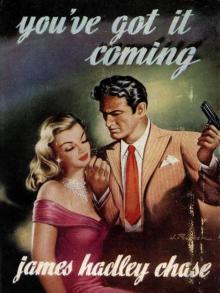 1955 - You've Got It Coming
1955 - You've Got It Coming 1963 - One Bright Summer Morning
1963 - One Bright Summer Morning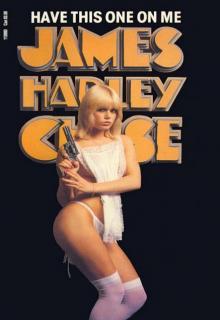 1967 - Have This One on Me
1967 - Have This One on Me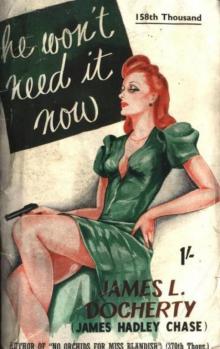 He Won't Need It Now
He Won't Need It Now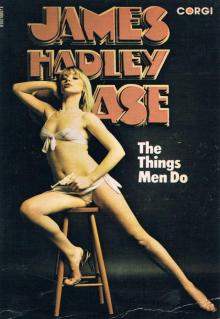 1953 - The Things Men Do
1953 - The Things Men Do Believed Violent
Believed Violent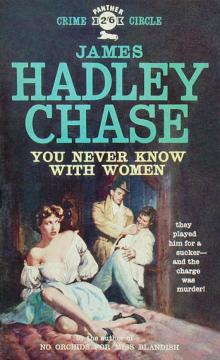 You Never Know With Women
You Never Know With Women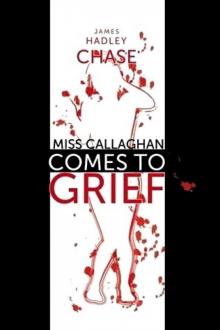 Miss Callaghan Comes to Grief
Miss Callaghan Comes to Grief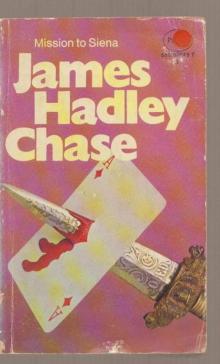 Mission to Siena
Mission to Siena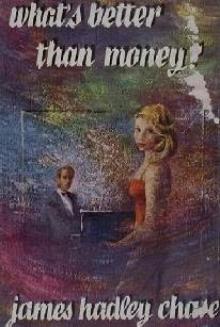 What's Better Than Money
What's Better Than Money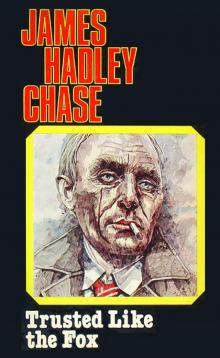 Trusted Like The Fox
Trusted Like The Fox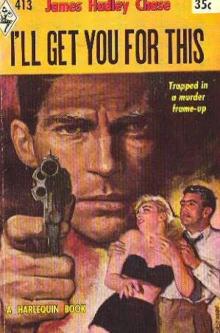 I'll Get You for This
I'll Get You for This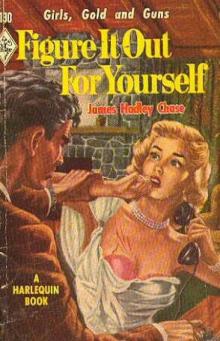 Figure It Out for Yourself vm-3
Figure It Out for Yourself vm-3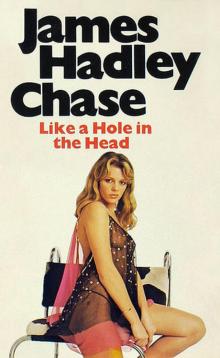 Like a Hole in the Head
Like a Hole in the Head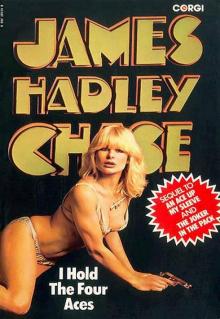 1977 - I Hold the Four Aces
1977 - I Hold the Four Aces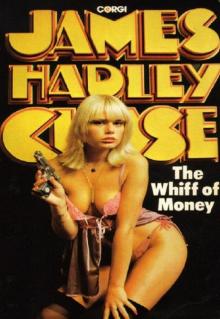 1969 - The Whiff of Money
1969 - The Whiff of Money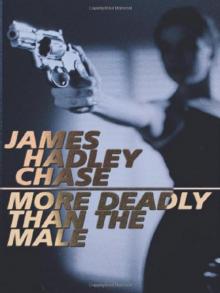 1946 - More Deadly than the Male
1946 - More Deadly than the Male 1956 - There's Always a Price Tag
1956 - There's Always a Price Tag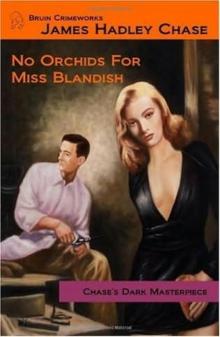 No Orchids for Miss Blandish
No Orchids for Miss Blandish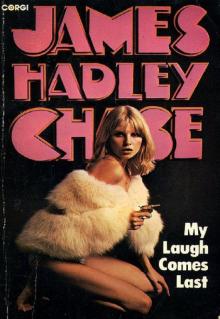 1977 - My Laugh Comes Last
1977 - My Laugh Comes Last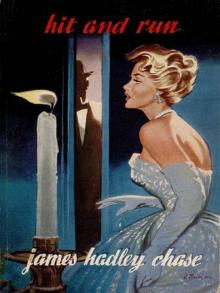 1958 - Hit and Run
1958 - Hit and Run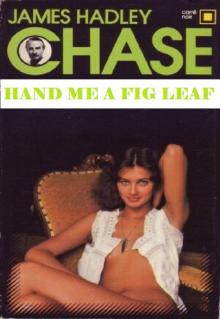 1981 - Hand Me a Fig Leaf
1981 - Hand Me a Fig Leaf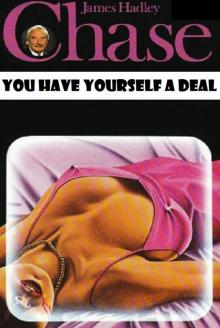 1966 - You Have Yourself a Deal
1966 - You Have Yourself a Deal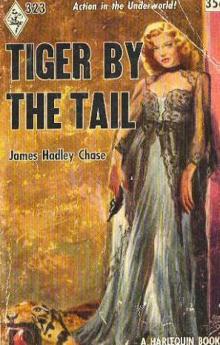 Tiger by the Tail
Tiger by the Tail